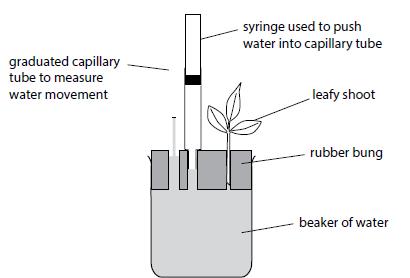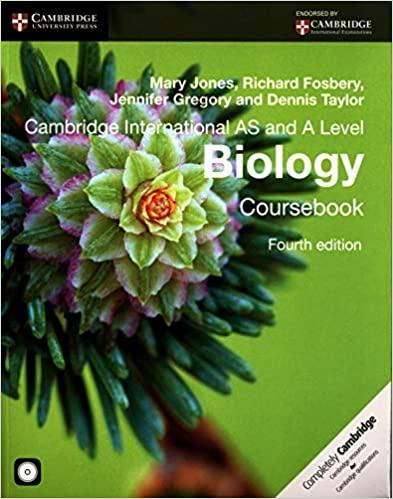The figure shows one type of potometer used by a student to investigate transpiration. a. i. Suggest
Question:
The figure shows one type of potometer used by a student to investigate transpiration.

a. i. Suggest a hypothesis the student could test about the transpiration of a mesophyte (a plant adapted to a moist environment) and a xerophyte (a plant adapted to a dry environment).
ii. Outline a procedure involving the potometer that the student could use to test this hypothesis.
iii. The capillary tube measures the distance moved by the water. Explain how the actual volume of water lost can be calculated.
b. Sketch a graph to predict the expected results of the investigation.
c. i. The student then measured the surface area of the leaves by tracing the outline on a grid and counting the number of squares covered by the leaves. This area was doubled.
Mesophyte:
surface area of leaves = 36 cm2
water loss in 30 minutes = 0.018 cm3
Calculate the rate of water loss in cm3 m−2 min−1. Show all the steps in your calculation.
ii. State a statistical test that the student could use to find out if the difference in water loss between the two types of leaf is significant. State a reason for your choice.
Step by Step Answer:

Cambridge International AS And A Level Biology
ISBN: 9781107636828
4th Edition
Authors: Mary Jones, Richard Fosbery, Jennifer Gregory, Dennis Taylor




